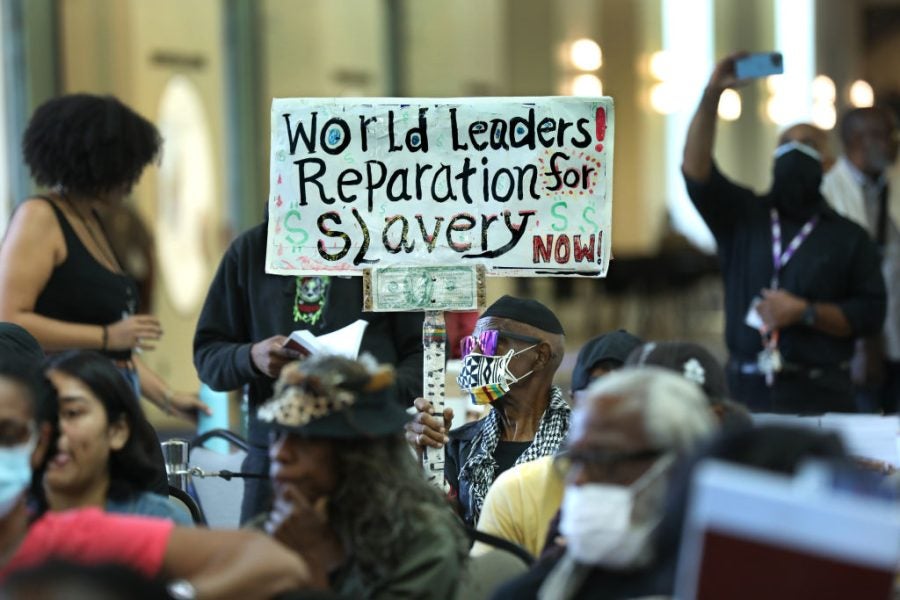
In a report on the long-term consequences of slavery and systemic racism on Black residents in California, the state’s reparations task force estimates that a massive $569 billion is due to descendants of enslaved people.
The nine-member panel determined that qualifying Black Californians would be eligible for $223,200 each as compensation for housing discrimination practices used between 1933 and 1977, according to a report in the New York Times.
The work of the Reparations Task Force, which was mandated by a law that Governor Gavin Newsom signed in 2020, and any potential payouts represent the biggest reparations effort in recent history.
“We are looking at reparations on a scale that is the largest since Reconstruction,” Jovan Scott Lewis, a professor at the University of California, Berkeley, who is one of the nine members, told the Times. “That is why we must put forward a robust plan with plenty of options,” Lewis said.
The California task force seeks to close the wealth gap between white and Black state residents.
According to the most recent Federal Reserve Board Survey of Consumer Finances, Black households nationwide have a median wealth of $24,100, compared to white households, where the median wealth is $188,200.
The panel suggests a significant portion of compensation is based on a history of housing discrimination against Black Californians.
The Times reported that the government frequently offered Black homeowners less money than they paid for their homes and then evicted them.
The task force will focus on four additional issues in addition to housing discrimination, including mass incarceration, unfair property seizures, devaluation of Black businesses, and health care.
The final dollar amounts will be included in a report that the task force will release next year.
Members of the task force can make suggestions to the state. However, it will be up to the California legislature to decide what to do with these recommendations and if it will support reparations payments for the descendants of those who were enslaved.
The panel is also considering how reparations might be paid out. According to the Times, the options include direct cash payments, tuition and housing grants.







